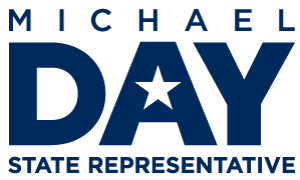Economic Development Bill Includes Relief For Restaurants
Back in May, I drafted and filed HD5054, An Act Relative to Restaurant Delivery Commissions in an effort to address some of the most pressing challenges our restaurant industry faced as a result of the COVID-19 State of Emergency. My bill capped the fees third-party food delivery services could charge to restaurants during the COVID-19 state of emergency.
As we all know too well, the restaurant industry (overwhelmingly family-operated and run by small business owners) has taken a devastating hit due to safety restrictions necessitated by this virus. Most of the restaurants in our towns are dine-in establishments and have struggled in their transition to take-out service. As a result, many have turned to contracting with online third-party food delivery services in an attempt to stay afloat. Unfortunately, on top of the drastic drop in revenues, the restaurants also had to deal with fees upwards of 30% from the third-party delivery vendors, essentially wiping out the small margins the restaurants made on take-out. My legislation addressed this by imposing a temporary cap on these fees to allow restaurants the time needed to make the transition to take-out service.
The House passed my bill as part of a larger restaurant relief measure in early June. Unfortunately, the Senate did not take this part of the legislation up when it passed a scaled-down restaurant relief bill in July.
However, with the overwhelming support of my colleagues, I successfully amended H4879 to once again include my portion of the restaurant relief bill. The bill is now in conference committee, where negotiators from the House and the Senate are attempting to iron out differences in the two economic development bills they each passed. I am hopeful that the Senate will agree to include this important restaurant relief measure in the final conference committee recommendations.
The bill also includes important provisions for the redevelopment of vacant and underutilized spaces for housing and economic development, increased availability of grants for municipalities to support women, minority, and veteran owned businesses, and a change to the statewide authorization of local zoning laws that will enable a city or town to adopt local zoning changes by majority vote instead of the current system requiring a ¾ vote. You can find the House bill HERE.
